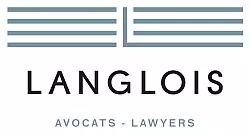This is the latest in a series of bulletins on the contractual framework for IT Solutions projects for the implementation of information technology solutions.
Procuring effective IT solutions and ensuring they are properly deployed and successfully implemented is now a necessity for any organization seeking to maintain or optimize the effectiveness of its business processes. Such projects generally require the professional services of the editor of the desired IT solution or consultants familiar with the technology involved.
Managing the risks associated with such projects requires a contractual framework adapted to the particular characteristics of information technology. The intensity and scope of the respective obligations of the service provider and the client are often neglected by the parties, whereas careful consideration of these can ensure the proper assessment of the efforts and degree of cooperation that will be required on the part of each party.
A review of the case law shows that the intensity and scope of the parties' obligations can vary significantly depending on the type of agreement the parties have reached.
In some cases the service provider's obligations are limited to the procurement of qualified personnel. In other cases the agreement provides for specialized consultant services and assisting the client in all stages of the project's development.
Clients will usually bear their share of responsibility and must clearly specify their needs and expectations and ensure the availability of its personnel.
It is thus important for the agreement to properly delineate and specify the nature and intensity of the obligations of each of the parties. A well-drafted contract will clarify the scope of the services, the parties' expectations and avoid uncertainty by specifying whether the provider is held to an obligation of result.
Chambre de la sécurité financière v. Open Text Conseil Inc.1
This case is a good illustration of the responsibilities that may be incumbent on the service provider and client in the context of implementation of an IT solution. In 2009 and 2010, the Chambre de la sécurité financière ("CSF") entered into three successive contracts for the selection and installation of an integrated software suite (the "Project"). The dispute centered on the scope of the supplier's obligations.
The provider argued that its obligations were limited to finding qualified and available consultants for the client's benefit. The provider thus maintained that it had contracted no obligation to advise and assist the client in connection with the Project.
The Court sided with CSF, pointing out that the contract clearly expressed the parties' intent. In the Court's view the terms used were in no way ambiguous: the service provider was bound to advise and assist CSF throughout the Project.
The Court more specifically found that:
- The preamble to one of the contracts confirmed that the service provider had assisted CSF in the first two stages of the Project and had offered its services to assist with the third stage.
- The services indicated on the invoices are described as "management and information technology consulting services".
- The document encapsulating the result of the work performed by the service provider contains, at the very end, an offer to assist CSF in subsequent phases of the Project.
Based primarily on the wording of the agreements at issue, the Court concluded that the contracts for IT consulting services entered into by the parties imposed on the service provider the obligation to advise and assist CSF throughout the Project.
The ultimately found that the consultant had not provided the efforts required to achieve the agreed-upon goal, i.e. the successful realization of the project for the implementation of a new software suite.
This judgment shows once again the importance of clearly delineating and specifying the scope and intensity of the obligations of each of the parties, from the very outset of the contractual relationship.
The technology law team at Langlois lawyers regularly assists clients in planning and negotiating the contractual framework for software or IT solutions development or deployment projects, and can advise you at all stages of your projects.
The content of this article is intended to provide a general guide to the subject matter. Specialist advice should be sought about your specific circumstances.
